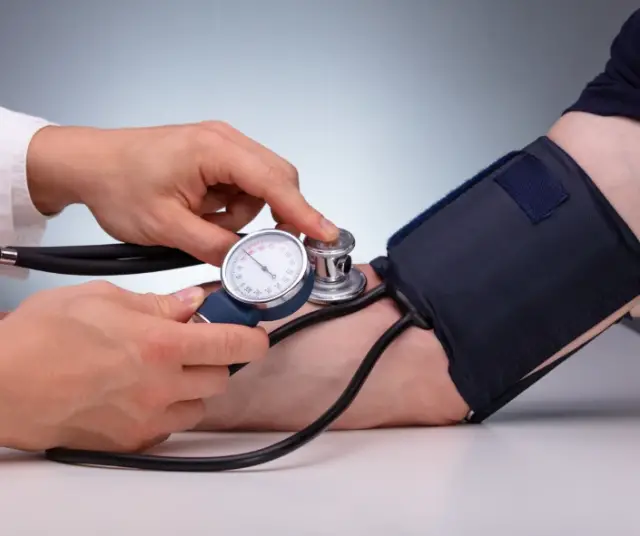Arterial hypertension, also known as high blood pressure, is a common condition that affects millions of people around the world. It is characterized by consistently elevated pressure in the arteries, which can put an additional strain on the heart and blood vessels. In this article, we will explore in detail high blood pressure, its underlying causes, health consequences, and effective strategies to control and prevent it.
Definition and categories of arterial hypertension
Arterial hypertension is defined as a condition in which the pressure exerted by the blood against the walls of the arteries is chronically elevated. It is important to note that blood pressure varies naturally throughout the day in response to different situations, such as physical exercise or stress. However, when blood pressure remains consistently high, it is considered high blood pressure.
High blood pressure is classified into different categories based on the values of systolic blood pressure (the blood pressure when the heart contracts) and diastolic blood pressure (the blood pressure when the heart relaxes between beats). The categories of arterial hypertension are the following:
- Normal Blood Pressure: Normal blood pressure is defined as a systolic blood pressure less than 120 mmHg and a diastolic blood pressure less than 80 mmHg. In this category, blood pressure falls within the ranges considered healthy.
- Prehypertension: Prehypertension refers to blood pressure values that are above those considered normal but still do not meet the criteria for the diagnosis of arterial hypertension. It is defined as a systolic blood pressure between 120-139 mmHg or a diastolic blood pressure between 80-89 mmHg. Prehypertension is considered a risk factor for the development of arterial hypertension in the future.
- Stage 1 High Blood Pressure: Stage 1 high blood pressure is characterized by a systolic blood pressure between 140-159 mmHg or a diastolic blood pressure between 90-99 mmHg. At this stage, blood pressure is elevated and requires intervention and control to prevent long-term complications.
- Stage 2 hypertension: Stage 2 hypertension is defined by a systolic blood pressure equal to or greater than 160 mmHg or a diastolic blood pressure equal to or greater than 100 mmHg. At this stage, blood pressure is significantly elevated and requires more aggressive control to prevent organ damage and cardiovascular disease.
- Isolated systolic hypertension: Isolated systolic hypertension is characterized by a systolic blood pressure equal to or greater than 140 mmHg and a diastolic blood pressure less than 90 mmHg. This form of high blood pressure is more common in older adults and is associated with an increased risk of cardiovascular disease.
Causes
High blood pressure can have a variety of causes, and is often due to a combination of genetic and environmental factors. Some of the more common causes include:
Genetic factors: Genetic predisposition may play an important role in the development of high blood pressure. If you have a family history of high blood pressure, you may be at higher risk of developing it.
Unhealthy lifestyle: Factors such as an unhealthy diet, low physical activity, excessive alcohol consumption, smoking , and chronic stress can contribute to the development of high blood pressure.
Underlying diseases: Some diseases, such as diabetes , chronic kidney disease, high cholesterol , and hormonal disorders, may be associated with high blood pressure.
Environmental factors: Prolonged exposure to certain environmental factors, such as high levels of stress , air pollution, and excessive salt intake, can increase the risk of high blood pressure.
Consequences
Uncontrolled high blood pressure can have serious health consequences. In the long term, it can increase the risk of developing cardiovascular diseases, such as coronary heart disease, cerebrovascular disease (stroke), and kidney disease. In addition, untreated high blood pressure can damage blood vessels , kidneys , and other vital organs, which can lead to serious and even life-threatening complications.
Strategies to control high blood pressure
Controlling high blood pressure involves a comprehensive approach that includes lifestyle changes and, in some cases, medications prescribed by a doctor. Here are some effective strategies to control high blood pressure:
Eat a healthy diet: The DASH (Dietary Approaches to Stop Hypertension) diet has been shown to lower blood pressure. This diet is based on foods rich in fruits, vegetables, whole grains, lean protein, and low-fat dairy products. Limiting sodium and saturated fat intake is also recommended.
Maintain a healthy weight: Being overweight and obese are associated with an increased risk of high blood pressure. Losing weight and maintaining a healthy body mass index ( BMI ) can help lower your blood pressure.
Exercise regularly: Regular physical activity , such as walking, running, swimming, or playing sports, can help control high blood pressure. At least 150 minutes of moderate-intensity aerobic activity per week is recommended.
Reduce alcohol consumption: Excessive alcohol consumption can increase blood pressure. Limit alcohol intake to moderate amounts (up to one drink a day for women and up to two drinks a day for men).
Control stress: Chronic stress can raise blood pressure. Find effective ways to manage stress, such as meditation , practicing relaxation techniques , yoga , or cognitive behavioral therapy.
Limit salt intake: Reducing sodium intake can help control blood pressure. Limit your intake of processed and canned foods, and opt for natural seasonings and spices instead of salt .
Take medications as prescribed: In some cases, medications prescribed by a doctor may be necessary to control high blood pressure. Follow your doctor's instructions and take medications as prescribed.
It is important to get regular blood pressure checks and work closely with a doctor to effectively manage this condition. Remember that the control of high blood pressure is essential to maintain good cardiovascular health and prevent serious long-term complications.
